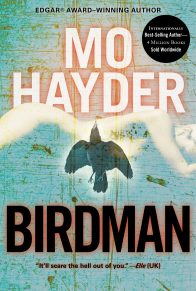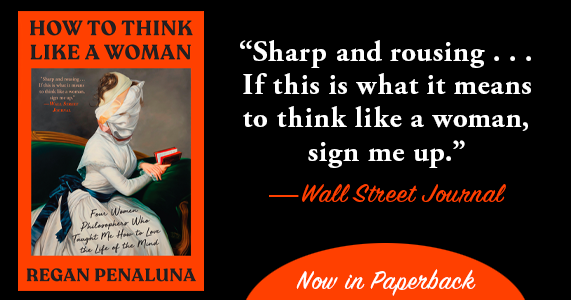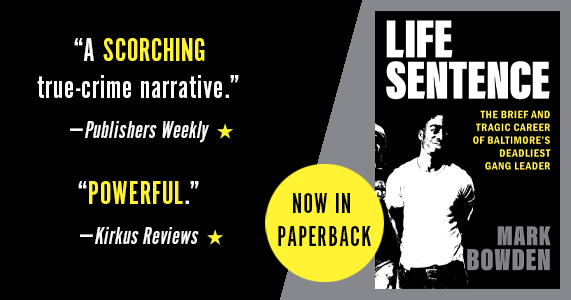Just after lunch on a Tuesday in May and nine feet under water in Bristol’s “floating harbour,” police diver Sergeant “Flea” Marley closed her gloved fingers round a human hand. She was half taken off-guard to find it so easily and her legs kicked a bit, whirring up silt and engine oil from the bottom, tipping her bodyweight back and upping her buoyancy so she started to rise. She had to tilt down and wedge her left hand under the pontoon tanks, then dump a little air from her suit so she was stabilized enough to get to the bottom and take a little time to feel the object.
It was pitch dark down there, like having her face in mud, no point in trying to see what she was holding. With most river and harbour diving everything had to be done by touch, so she had to be patient, allow the thing to feed its shape from her fingers up her arm, download an image in her mind.
She palpated it gently, closing her eyes, counting the fingers to reassure herself it was human, then worked out which digit was which: the ring finger first, bent away from her, and from that she could figure out which way the hand was lying—palm upward. Her thoughts raced, as she tried to picture how the body would be—on its side probably. She gave the hand an experimental tug. Instead of there being a weight behind it, it floated free of the silt, coming away easily. At the place where a wrist should be there was just raw bone and gristle.
“Sarge?” PC Rich Dundas said, into her earpiece. His voice seemed so close in the claustrophobic darkness that she startled. He was up on the quay, tracking her progress with her surface attendant who was meting out her lifeline and controlling the coms panel. “How you doing there? You’re bang over the hotspot. See anything?”
The witness had reported a hand, just a hand, no body, and that had bothered everyone in the team. No one had ever known a corpse to float on its back—decomposition saw to that, made them float face down, arms and legs dangling downwards in the water. The last thing to be visible would be a hand. But now she was getting a different picture: at its weakest point, the wrist, this hand had been severed. It was just a hand, no body. So there hadn’t been a corpse floating, against all physical laws, on its back. But there was still something wrong about the witness statement. She turned the hand over, settling the mental picture of the way it was lying—little details she’d need for her own witness statement. It hadn’t been buried. She couldn’t even say it was buried in the silt. It was just lying on top of it.
“Sarge? You hear me?”
“Yeah,” she said. “I hear you.”
She picked up the hand. She cupped it gently, and slowly let herself sink to hover above the silt at the bottom of the harbour.
“Sarge?”
“Yeah, Dundas. Yeah. I’m with you.”
“Got anything?”
She swallowed. She turned the hand round so its fingers lay across her own. She should tell Dundas it was “five bells.” A find. But she didn’t. “No,” she said, instead. “Nothing yet. Not yet.”
“What’s happening?”
“Nothing. I’m going to move along a bit here. I’ll let you know when I’ve got something.”
“OK.”
She dug one arm into the muck at the bottom and forced herself to think clearly. First she pulled gently at the lifeline, dragging it down, feeling for the next three-metre tag. On the surface it would appear to be paying out naturally—it would look as if she was sculling along the bottom. When she got to the tag she sandwiched the line between her knees to keep up the pressure and lay down in the silt the way she taught the team to rest if they got a CO2 overload, face down so the mask didn’t lift, knees lightly in the sludge. The hand she held close to her forehead, as if she was praying. In her coms helmet there was silence, just a hiss of static. Now she’d got to the target she had time. She unplugged the mike from her mask, took a second to close her eyes and check her balance. She focused on a red spot in her mind’s eye, watched it, waited for it to dance. But it didn’t. Stayed steady. She kept herself very, very still, waiting, as she always did, for something to come to her.
“Mum?” she whispered, hating the way her voice sounded so hopeful, so hissy in the helmet.
“Mum?”
She waited. Nothing. As it always was. She concentrated hard, pressing lightly on the bones of the hand, making this stranger’s piece of flesh seem half familiar.
“Mum?”
Something came into her eyes, stinging. She opened them, but there was nothing: just the usual stuffy blackness of the mask, the vague brownish light of silt dancing in front of the face-plate, and the all-enveloping sound of her breathing. She fought the tears, wanting to say it aloud: Mum, please help. I saw you last night. I did see you. And I know you’re trying to tell me something—I just can’t hear it properly. Please, tell me what you were trying to say.
“Mum?” she whispered, and then, feeling ashamed of herself, “Mummy?”
Her own voice came back, echoing round her head, except this time, instead of Mummy, it sounded like Idiot, you idiot. She put her head back, breathing hard, trying hard not to let any tears come. What was she expecting? Why was it always here, under water, that she came to cry, the worst place—crying in a mask she couldn’t pull off like sport divers could. Maybe it was obvious she’d feel closer to Mum somewhere like this, but there was more to it than that. Ever since she could remember, the water had been the place she could concentrate, feel a sort of peace floating up, as if she could open channels down here that she couldn’t open on the surface.
She waited for a few minutes longer, until the tears had gone somewhere safe, and she knew she wouldn’t blind herself or make a fool of herself when she surfaced. Then she sighed and held up the severed hand. She had to bring it close to her mask, had to let it brush the Perspex visor, because that was how close you had to get to things in this sort of visibility. And then, looking at the hand close up, she realized what else was worrying her.
She plugged in the coms lead. “Dundas? You there?”
“What’s up?”
She turned the hand, less than a centimetre from the visor, examining its greying flesh, its ragged ends. It had been an old guy who’d seen the hand. Just for a second. He’d been out with his toddler granddaughter who’d wanted to test-run new pink wellies in the storm. They’d been huddled under an umbrella, watching the rain land in the water when he’d seen it. And here it was—at the exact same hotspot he’d told the team it would be, tucked up under the pontoon. No way could he have seen it down here in this visibility. You couldn’t see down five inches from the pontoon.
“Flea?”
“Yeah, I was thinking—anyone up there ever known it be anything other than nil vis down here?”
A pause while Dundas consulted the team on the quayside. Then he came back. “Negative, Sarge. No one.”
“Definitely nil vis about a hundred per cent of the time, then?”
“I’d say that’s a high likelihood, Sarge. Why?”
She placed the hand back on the floor of the harbour. She’d come back to it with a limb kit—no way could she swim to the surface with it and lose forensic evidence—but now she held on to the search line and tried to think. She tried to catch an idea of how the witness had been able to see it, tried to hold on to the idea and work it out, but she couldn’t nail it. Probably something to do with what she’d got up to last night. That or she was getting older. Twenty-nine next month. “Hey, Mum, how about that. I’m nearly twenty-nine. Never thought I’d get this far, did you Sarge?”
She paid out the rope slowly, working against the surface attendant’s pressure, making it look as if she was crawling back along the base of the quay. She adjusted the coms lead so the connection was secure.
“Yeah, sorry,” she said. “Zoned out a bit there. Five bells, Rich. I’ve got the target. Coming up now.”
She stood on the harbour in the freezing cold, mask in her hand, her breath white in the air, and shivered while Dundas hosed her down. She’d been back down to recover the hand with the limb kit, the dive was over and this was the bit she hated, the shock of coming out of the water, the shock of being back with the sounds and the light and the people—and the air, like a slap in the face. It made her teeth chatter. And the harbour was dismal even though it was spring. The rain had stopped and now the weak afternoon sun picked out windows, the spiky cranes in the Great Western Dock opposite, oily rainbows floating on the water. They’d screened off an area of treated pine deck at the rear of a waterfront restaurant, the Moat, and her team in their fluorescent yellow surface jackets moved round the outdoor tables, sorting their gear: air cylinders, communications system, standby raft, body board—all laid out between the standing pools of rainwater on the deck.
“He was agreeing with you.” Dundas turned off the hose and nodded to the restaurant’s plate-glass window where, his reflection smudged and dull, the crime-scene manager was looking down to where the hand lay at his feet in the opened yellow limb bag. “He thinks you’re right.”
“I know.” Flea sighed, putting down her mask and pulling off the two pairs of gloves all police divers wore for protection. “But you’d never know it to look at him, eh?”
It wasn’t the first, nor would it be the last body part she would fish out of the mud around Bristol, and except for what it said about the sadness and loneliness of death, usually a severed hand wasn’t remarkable. There’d be an explanation for it, something depressing and mundane, probably suicide. The press often watched the police operation with their zoom lenses from the other side of the harbour, but today there was no one at Redcliffe wharf. It was just too commonplace even for them. Only she, Dundas and the CSM knew that this hand wasn’t commonplace at all, that when the press heard what had slipped by them they’d be tying themselves in knots to get an interview.
It wasn’t decomposed. In fact, it was completely uninjured apart from the separation wound. So damn fresh all the alarm bells had gone off at once. She’d pointed it out to the CSM, asked how on earth it could have got separated from its owner when to look at it there was no way it had just come apart from the body, not without some very particular injury, and if she had to take a guess those didn’t look like fish bites but blade marks on the bones. And he’d said he couldn’t possibly comment before the post-mortem, but wasn’t she clever? Too clever by half to be spending her life under the water.
“Anyone spoken to the harbour master?” Flea asked now, as her surface attendant helped her off with her harness and cylinders. “Asked what flow’s been through here today?”
“Yes,” said Dundas, bending to coil away the jetwash hose. She looked at the top of his head, at the vivid red beanie he always wore—otherwise, he said, he could heat a stadium with the warmth that came off his bald scalp. Under his fluorescent all-weather gear she knew he was tall and heftily built. Sometimes it was hard being a woman on her own, making decisions for nine men, half of them older than she was, but Dundas she never doubted. He was on her side through it all. A genius technician, he had a father’s way with the staff and the gear, and, at times, a filthy, filthy mouth on him. Just now he was concentrating, and when he did that he was so good she could kiss him.
“There’s been flow today, but not until after the sighting,” he said.
“The sluices?”
“Yeah. Open this afternoon for twenty minutes at fourteen hundred. The harbour master had the dredger come down from the feeder canal to offload for a bit.”
“And the call came in at?”
“Thirteen fifty-five. Just as they were opening the sluices. Otherwise the harbour master would’ve waited. In fact, I’m sure he’d have waited, when I think how much they love us down here. How they’re always trying to bend over backwards for us.”
Flea hooked her fingers under the neoprene dry hood and rolled it up her neck, going gently over her face and head so it didn’t snag too much, because whenever she inspected her hoods they always seemed to be full of hairs pulled out by the roots, little pearls of skin attached.
Sometimes she wondered why she wasn’t as bald as Dundas. She dropped the hood, wiped her nose and looked sideways across the water, up to Perrot’s bridge, the sunlight splashing gold on the twin horns, beyond it St Augustine’s Reach where the river Frome rose from underground and let into the harbour.
“I dunno,” she muttered. “It sounds backwards to me.”
“What’s that?”
She shrugged, looked at the piece of grey flesh on the deck between the two men’s feet and tried to work out how the witness could have seen the hand. But it wasn’t happening. Her head kept seesawing—trying to take her with it. She reached out and sank on to one of the chairs, her hand to her forehead, knowing the blood had gone out of her face.
“All right there, Flea, old girl? Christ, you’re really not looking much of it.”
She laughed and ran her fingers down her face. “Yeah, well, don’t feel much of it.”
Dundas squatted down in front of her. “What’s going on?”
She shook her head, looked down at her legs in the black dry suit, at the pools of water gathering round her dive boots. She had more diving hours under her belt than any of the team, and she was supposed to be in charge so it was wrong, all wrong, what she’d done last night.
“Oh, nothing,” she said, trying to keep it light. “Nothing, really. The usual—I just can’t sleep.”
“Still crap, then?”
She smiled at him, feeling the light catch at the raindrops in her eyes. As the unit leader she was a trainer too, and that meant sometimes putting herself in the water, at the bottom of the chain of command, giving the others a chance to be dive supervisor. In her heart she didn’t like it. In her heart she was only really happy on days like today when she’d put Dundas in as dive supervisor. He had a son—Jonah—a grown-up son who stole money from him and his ex-wife to feed a drug habit, yet gave his father all the feelings of guilt that Flea’s brother Thom gave her, always. She and Dundas had a lot in common.
“Yeah,” she said eventually. “It’s still crap. Even after all this time.”
“Two years,” he said, putting a hand under her arm and helping her to stand up, “is not a long time. But I can tell you one thing that’d help.”
“What?”
“Eating something for a change. Stupid thought, I know, but maybe it’d help you sleep.”
She gave him a weak smile and put a hand on his shoulder, letting him pick her up. “You’re right. I’d better eat. Is there anything in the van?”















